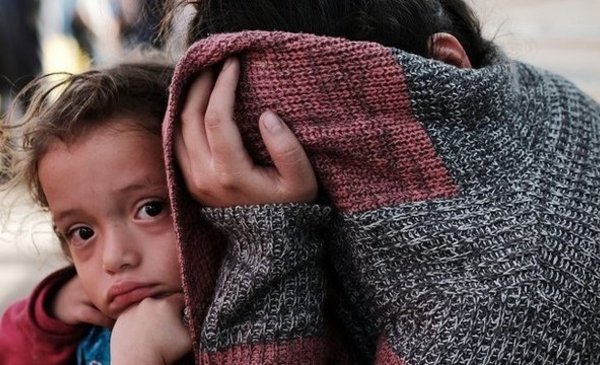“Those who have once found themselves together on the benches of a school, to which they attend making use of the same right, get used to considering themselves equal.” José Pedro Varela, the reformer of Uruguayan education in the last part of the 19th century, was able to summarize in sentences the motivations for a teaching that is secular, free and compulsory. And although his detractors alleged a certain excess of sweetness in those phrases, the truth is that his postulates penetrated so deeply that they ended up being distinctive of Uruguayan society. So much so that under the white tunic and blue bowthe differences vanish.
Despite this free, secular and compulsory nature, nearly half of children or adolescents recent refugees, asylum seekers or with well-founded reasons to request the shelter of the State —such as some of the Venezuelans who arrived during the health emergency— they are not in school They don’t even go to high school. “The reasons given vary from the fact that they are newcomers to the country, not having information about the Uruguayan educational system, the lack of required documentation (although the system allows registration and then the administrative set-up) and the lack of resources to cover the costs of education”, reveals a recent investigation of the Catholic University of Uruguay commissioned by the United Nations Refugee Agency (UNHCR).
The out-of-school data surprised the researchers, who stated in their conclusions that there is “a lack of knowledge of the free Uruguayan education system, with access to materials and food for the most vulnerable children, as well as lack of knowledge about (the requirements for) enrollment.”
That same lack of knowledge, although to a lesser extent, occurs in the health system: almost a fifth of those surveyed for the academic research responded that they currently do not have access to health coverage. Although at this point, in addition to the lack of information, the researchers identified that “the delay in the process of obtaining the identity card, which was further increased by the pandemic, delays entry into the formal labor market and therefore to health coverage.
According to the doctor in History and Master in Immigration Silvia Falcal, who coordinated the study, the research shows “significant differences” between migrants who reside in Montevideo and those who do so in the interior. “Through the seed survey (a technique that consists of one person recommending another and thus a network of interviewees is configured) we have detected that in the interior there are employers who do not comply with all labor obligations and who know until when they are the labor inspections to avoid a fine”, he explained.
In this sense, working conditions and access to housing are the most recurrent vulnerabilities that afflict newcomers. The fifth part states that they have suffered discrimination in the workplace. It was almost always because of their nationality of origin (with expressions like: “You, the foreigners, they come to take our work”), to a lesser extent due to age, religion or language.
Since 2015, Uruguay has become a point of relevance for refugee claimants. In addition to the more political conflicts (such as in Cuba or Venezuela) and security risks (such as in Colombia or the Northern Triangle of Central America), there were Russians who were victims of sexual persecution, Africans who escaped religious harassment and Bengalis with ethical disputes and climate. Such was the growth that Acnur estimated at more than 26,000 the public of interest in Uruguay for this United Nations agency.
“The covid-19 pandemic has increased their vulnerabilities and needs in the 10 departments studied”, says the study that showed that most of the newcomers reside in pensions or room rentals in the first months of reception. 91% are unaware of the housing plans, even when, on average, it is a more educated population than the Uruguayan population.
Because more than 40% have tertiary education (compared to 12.3% of the native population). Many of them come with training in areas of special shortage of Uruguayan labor: one fifth of the professionals are engineers or with similar titles, 10% have a specialty in computer science and 7% have health careers such as nursing and medicine. .
The jobs they do in Uruguay, however, do not always go hand in hand with that classification and the pandemic has aggravated that gap. In fact, the Catholic University survey warns that two thirds perceive that their salary is not enough to cover their basic needs, although most say they receive what they were promised.
And in those promises, again, the ignorance of local laws returns. Almost 40% admit not getting paid for overtime work and 12% do not have access to their pay stubs. Therefore, one of the main conclusions of the study is that “it is necessary for the population of interest to have a greater access to the necessary information not only to access Uruguayan documentation but also to have guaranteed their rights of access to a formal job, decent housing, comprehensive health, studies and financial inclusion”.







